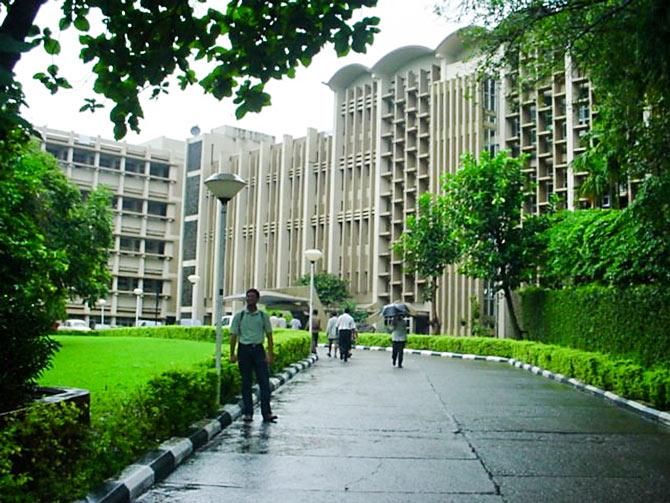Contributions made to public funded universities, IITs, national laboratories and autonomous bodies engaged in conducting research in science, technology, engineering and medicine has now been recognised as part of CSR by the government.

Expansion of the scope of corporate social responsibility (CSR), as part of Finance Minister Nirmala Sitharaman's tax rate cut measures for India Inc on Friday, is set to boost research impact and thereby improve global rankings for public funded institutes like Indian Institutes of Technology (IITs).
As part of expanding the scope of the two per cent CSR spending, contributions made to public funded universities, IITs, national laboratories and autonomous bodies engaged in conducting research in science, technology, engineering and medicine has now been recognised by the government.
The announcement by the finance minister also lays out further clarity on spending on incubators funded by central or state governments or any agency.
Welcoming the move, IIT Gandhinagar director Sudhir Jain said that while IITs had been making efforts to bring in money through other channels, the announcement will now provide greater clarity among corporates to invest in research at the premier institutes.
"We already had effort to bring philanthropic money for doing things that were not possible through government money. Earlier, the CSR law talked about education in general but companies used to be a little confused. Now the announcement makes it clear for corporates that their contributions to IIT will qualify as CSR. This will also help us improve quality of research which will go a long way in boosting IITs' standing in global rankings," said Jain.
Currently, IITs can get their infrastructure projects approved from the Higher Education Financing Agency (HEFA) which will then disburse funds as loans. However, according to Jain, in order to stand at par with other global varsities, public funded universities in India will have to enhance their spending.
"We need funding for societal projects, research, foreign travel expenses for conferences, and setting up of faculty chair, among other things. Part of these requirements can now be fulfilled through CSR," he added.
IIT Madras Incubation Cell (IITMIC), on the other hand, said that it has already been receiving CSR funding after an amendment on the CSR Act almost three to four years back.
IITMIC has already received funds from 10-11 companies, said Priya Mohan communication manager at the cell. However, now with the government widening the scope, the move is set to will help many more institutes and incubation centres get access to corporate funds. The extension of funds to research institutes too is believed to boost innovation going forward.
Incubation centres also said that most of the corporate are not aware that they can also fund an incubation centre, research and innovation, through CSR money. The announcement by finance ministry opens up this opportunity for incubators, accelerators and start-ups.
"The advantage of CSR funding into incubation cells is that the corporates will also bring in their expertise, exposure to their facilities, mentoring support and through their network a larger exposure to the incubation centres and the start ups, apart from the funding. It is a wonderful opportunity where the corporates engage with start ups in a more meaningful way apart from funding," Mohan added.
The industry too has welcomed the move since it now also helps corporates track their money contributed to such public institutes, laboratories and incubation centres for research.
"Earlier, much of CSR funding that came to varsities used to be for purposes other than research. This is a way forward now. However, as an industry body we will continue to lobby for a parity among public and private universities. While funding public universities should get this money, why discriminate between public and private institutes? CSR spending should be outcome based so that corporates are aware what is happening with their money," Federation of Indian Chambers of Commerce and Industry (FICCI) assistant secretary general and education consultant Shobha Ghosh.












 © 2025
© 2025